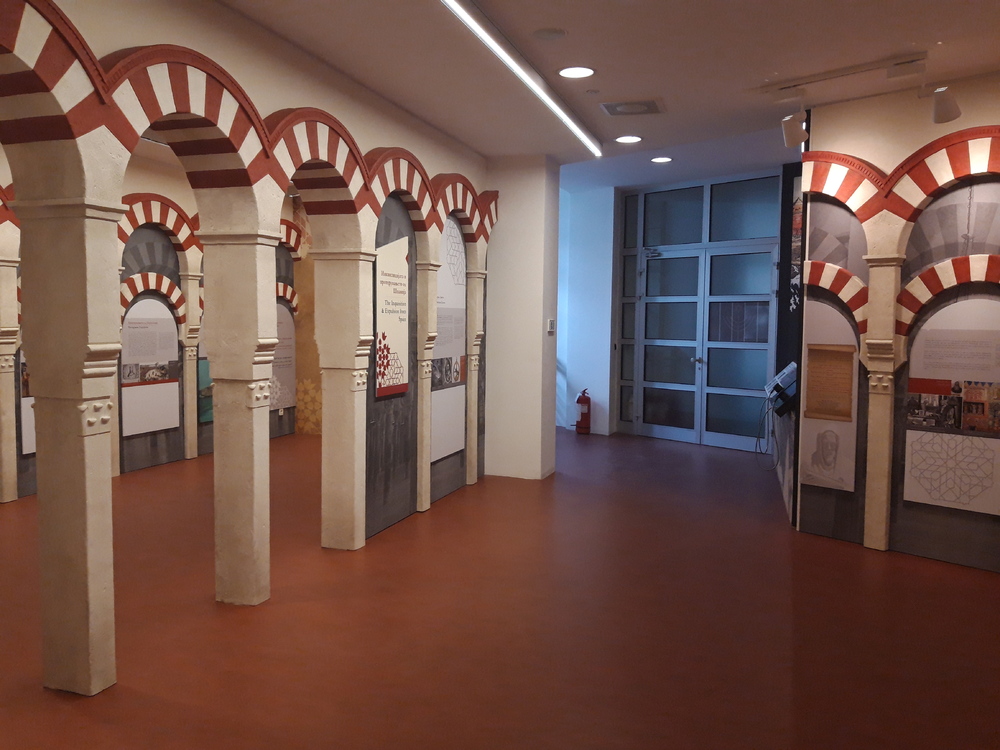The Sephardic Museum in Toledo/Holocaust Memorial Center for the Jews of Macedonia, Skopje: The expulsion of Jews from Spain
By the 1400s life for Jews in Christian Spain had become increasingly difficult. They were prohibited from many professions and even from contacts with Christians. There were pogroms, violence and forced conversions to Christianity. The converted Jews were often not trusted and became known as Marranos, meaning ‘swine’. Some of them continued to practice Judaism in secret. The Roman Catholic Pope established a tribunal that sought out heretics and secret Jews. Jews were falsely accused of trying to draw Christians out of their beliefs.
Eventually, in 1492 Queen Isabella and King Ferdinand issued a decree of expulsion called Alhambra Decree. It ordered all the Jews either to convert to Catholicism or to leave Spain. Most of the expelled Jews went to Portugal and then to North Africa, Italy, France, or Holland; later they spread in the Turkish Empire. The memory of the vibrant Jewish community and its input to Spanish civilisation was lost in Spain for next few centuries.
Context - Exclusion and discrimination:
Jewish museums confronting stereotypes and explaining mechanisms of exclusion and discrimination. Jewish museums in Europe present a perspective on a minority that for centuries has been treated as inferior in Christian society. Although the Jews were often tolerated, their presence was usually threatened. Various stereotypes and prejudices that showed the Jews in negative light were circulated. They were exposed to exclusion and discrimination that sometimes led to persecutions and violence. In the 20th century most European Jews perished in the Holocaust, a consequence of the racial hatred that evolved from earlier developments. Jewish museums confront these anti-Semitic stereotypes and conflicts of the past and explain their genesis and mechanisms. They present the highly negative consequences of religious intolerance, nationalism and racism. By teaching a lesson from history they fight prejudices, promote tolerance and open people to cultural diversity.
Title
content
Description
Context
Jewish museums in Europe present a perspective on a minority that for centuries has been treated as inferior in Christian society. Although the Jews were often tolerated, their presence was usually threatened. Various stereotypes and prejudices that showed the Jews in negative light were circulated. They were exposed to exclusion and discrimination that sometimes led to persecutions and violence. In the 20th century most European Jews perished in the Holocaust, a consequence of the racial hatred that evolved from earlier developments. Jewish museums confront these anti-Semitic stereotypes and conflicts of the past and explain their genesis and mechanisms. They present the highly negative consequences of religious intolerance, nationalism and racism. By teaching a lesson from history they fight prejudices, promote tolerance and open people to cultural diversity.
Questions
Temporal Coverage
Spatial Coverage
map
Relation
Is Referenced By
Source
http://www.culturaydeporte.gob.es/msefardi/home.html
Holocaust Memorial Center for the Jews of Macedonia, Skopje
https://holocaustmemorialcenter.mk/en/


